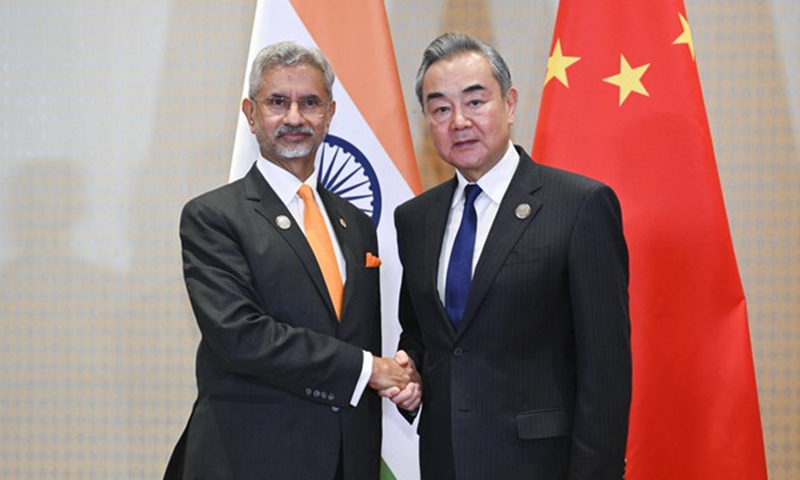Jaishankar says consensus between India, China far outweighs differences; expression indicates India recognizing change in regional, intl situation: experts

Chinese Foreign Minister Wang Yi met with Indian External Affairs Minister Subrahmanyam Jaishankar on the sidelines of the G20 Summit in Rio de Janeiro, Brazil on Monday.
Wang, also a member of the Political Bureau of the Communist Party of China Central Committee, said that the two sides should implement the important consensus reached by the two heads of state, respect each other's core interests, enhance mutual trust through dialogue and communication, handle differences properly with sincerity and integrity, and bring the bilateral relationship back on the track of stable and sound development at an early date.
The two sides should send more positive signals and engage in actions that facilitate bilateral exchanges, enhance mutual trust and reduce suspicion, and carry out more cooperation and reduce attrition, Wang said.
The two sides should strive to make practical progress in such issues as resuming direct flights, exchanging journalists and easing visa procedures as soon as possible, he said.
Qian Feng, director of the research department at the National Strategy Institute at Tsinghua University, told the Global Times on Tuesday that this indicates China's consistent position, which is the hope that both sides should make substantial progress in people-to-people exchanges to promote the restoration of bilateral relations to a path of peaceful development.
Notably, during the meeting, Jaishankar said that the consensus between India and China far outweighs their differences, according to the Xinhua News Agency.
India hopes to restart relevant dialogue mechanisms swiftly and maintain the momentum for improving and developing bilateral relations through strengthened communication, Jaishankar said.
Both sides should view bilateral relations from a strategic perspective, properly handle relevant issues with a more positive attitude, and not let specific disagreement dominate bilateral ties, he added.
"Jaishankar's words are rather positive, indicating that after several years of declining relations, India is willing to work with China in the face of the current changes in the international and regional situation," Qian said.
This shows that India is willing to promote the return of bilateral relations to a healthy and stable development track, Qian said.
Echoing Qian, Long Xingchun, a professor from the School of International Relations at Sichuan International Studies University, told the Global Times on Tuesday that Jaishankar's words mark a big change from the past, which is more align with China's longstanding principle that the consensus between the two countries far outweighs their differences.
Long noted that despite the differences, the relationship between China and India still needs to develop, and their people should maintain friendly exchanges, as these align with the interests of both countries. "If the Indian side recognizes this and puts it into practice, it would have a very positive influence for the relationship between the two countries," Long said.
"If the Indian side implements concrete measures, the relationship between the two countries can be better stabilized and developed," Qian said.